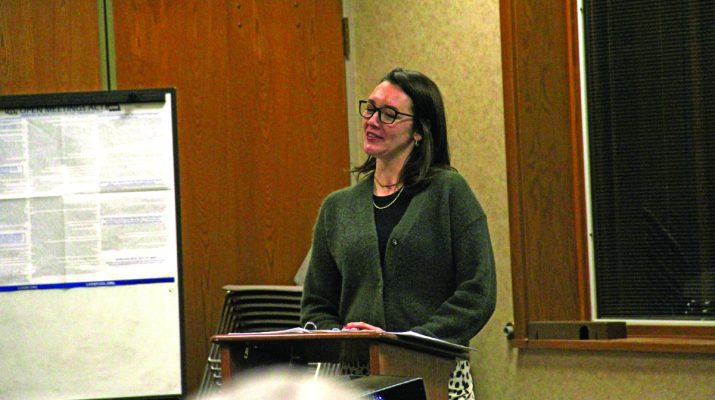Recently, Dalsey Lambley, Financial Advisor at Edward Jones, gave a presentation at the Alliance Public Library, giving tips on how people can stay safe by avoiding scams.
Scammers are prevalent in our daily lives, “hardly anyone you speak to doesn’t either know someone who has been scammed, almost been scammed, or have found themselves in position of being scammed,” said Lambley.
Lambley provided information on common types of scams and ways to outsmart the scammers; and while she takes special training on preventing fraud every year, this is her first time educating others in a group setting.
“I held the seminar in partnership with the Alliance Public Library last week because I want to help investors and consumers in our community be more informed so they can protect themselves from falling victim to fraud,” Lambley said.
“Some of the more common types of scams out there are internet scams that include collection fraud, romance scams, and computer intrusion scams. They begin with receiving an unsolicited email, pop-up, direct message, or text. These all involve someone pretending to be someone they are not to influence or gain trust, and scams of all kinds are on the rise,” said Lambley.
When asked what steps to take to stay safe, Lambley replied, “Being wary and knowing the red flags can go a long way to preventing fraud. Con artists prey on emotions like loneliness, fear, and sympathy. They are normal, even beautiful human emotions, but always be wary of unsolicited contacts that create a sense of urgency. Scammers want you to act without thinking, so remain calm. Don’t enter into a relationship with anyone online whose identity you can’t verify. Don’t give out personal information or send money over the internet or phone to an unsolicited contact. If they called, texted, or emailed you, do not use the contact information they provide and instead call the alleged company back at a number you have verified through publicly available sources. Most importantly, if something just doesn’t seem right, there’s a good chance it probably isn’t. Ask a trusted friend or family member, as an unbiased perspective can often make a big difference in identifying fraud before it happens.”
Lambley is willing to present this workshop to any groups or organizations in the community, and are encouraged to contact her.

